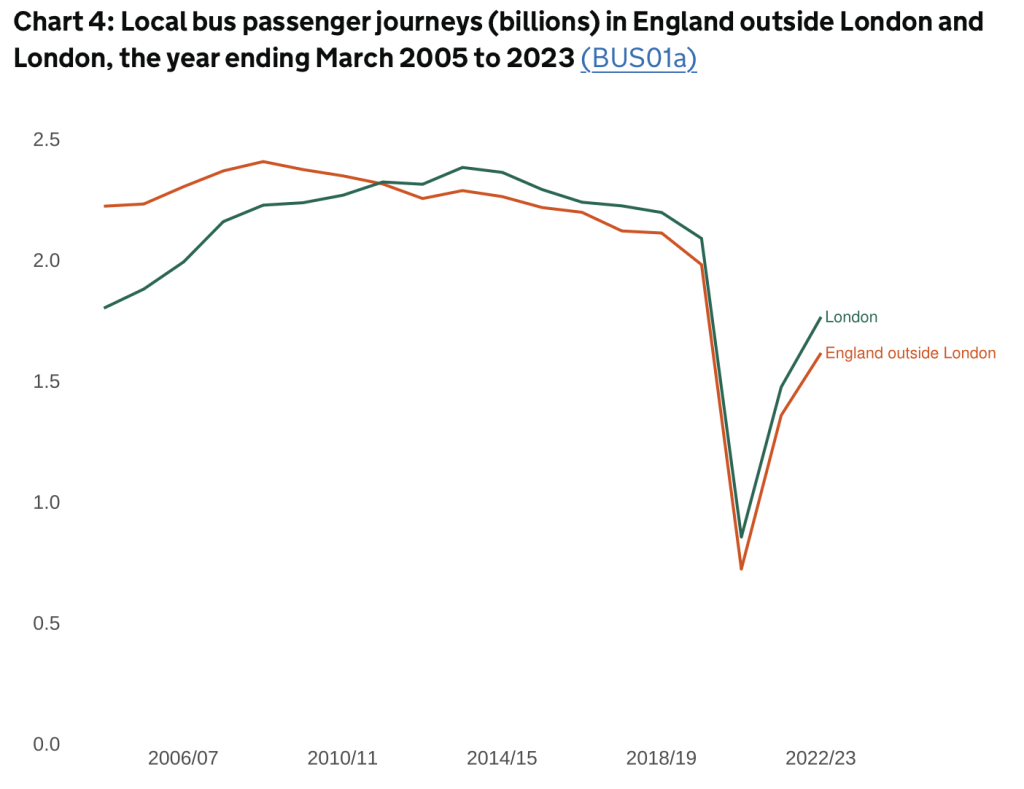Yesterday, Chancellor of the Exchequer Rachel Reeves announced a new budgetary measure raising the bus fare cap across England from £2 to £3, effective through the end of 2025. This 50% increase could place a considerable burden on regular bus users’ budgets, particularly in rural areas where public transport is often the only available option. London, however, remains unaffected by the change, continuing to offer the cheapest fare in the country—a difference that underscores the widening regional divide in transport costs.
How London’s fare structure stands apart
In London, fares are independently managed by Transport for London (TfL), meaning that the price for a single bus journey will stay at £1.75. This fare also includes the Hopper fare, which allows unlimited bus and tram journeys within an hour for £1.75 when using contactless or Oyster cards.
Mayor Sadiq Khan, responsible only for TfL services, has committed to maintaining this freeze until March 2025, with the possibility of extending it further if economic conditions allow. His latest manifesto, published in April, reinforces this promise as part of his efforts to support public transport affordability for Londoners.
Who does the fare freeze apply to?
Under current policy, TfL has frozen the following fares until March 2025:
- Pay-as-you-go fares on buses, the Tube, trams, and the DLR
- Most pay-as-you-go fares on the London Overground and Elizabeth line
- Single and return paper fares
It’s important to note, however, that the Mayor’s authority is limited to TfL fares. Prices for Travelcards and daily or weekly fare caps are set in collaboration with train operating companies and reflect broader government rail fare policies, meaning these could still see adjustments independent of the Mayor’s decisions.
What’s next for London’s bus fares?
The question remains: what will Sadiq Khan decide in March 2025, especially now that the Labour government has just implemented a 50% increase in single bus fares across much of England?

Source : Annual bus statistics: year ending March 2023 (revised) – Department for Transport
Bus usage in London, representing more than half of all bus journeys in England, has still not fully recovered to pre-pandemic levels. An increase in fares could impact London households significantly, shrinking budgets available for essentials like food and basic needs, and potentially discouraging public transport use altogether.
An increase in fares could also hinder efforts to reduce CO₂ emissions and improve air quality—a key priority for the Mayor, who welcomed this budget, highlighting the positive news for Transport for London : the Chancellor has committed £485 million to TfL’s capital renewals program, including funding for rolling stock on the Piccadilly and Elizabeth Lines, and confirmed that HS2 will reach Euston.
Londoners shouldn’t have to choose between essential expenses and getting around their city. As discussions around public transport funding continue, it’s crucial that the Mayor maintains the current fare cap in March 2025 to ensure affordable, accessible transport remains a priority. Any alternative would be hard to justify.







